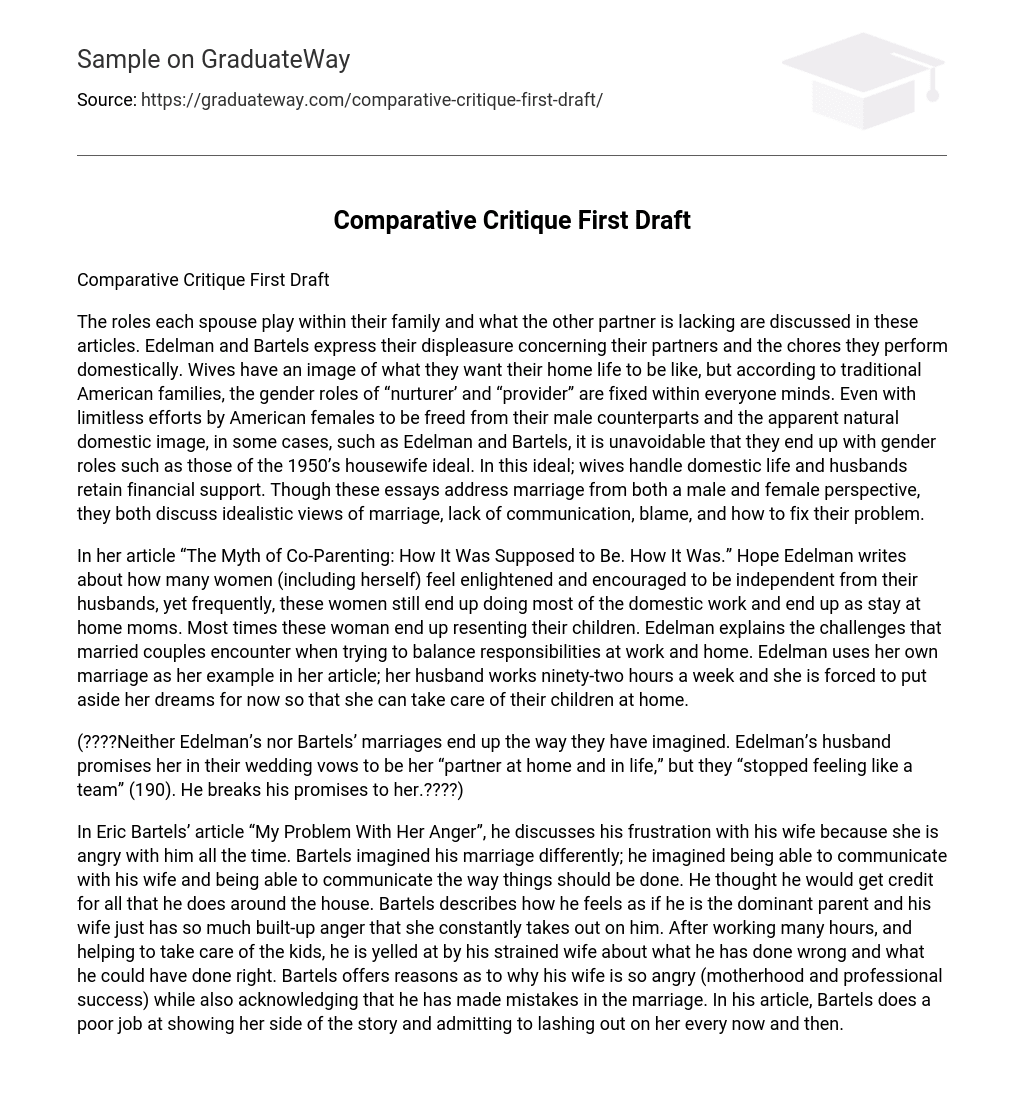In these articles, the authors discuss the roles played by each spouse within their family and express their dissatisfaction with their partners and their domestic responsibilities. Wives have a specific vision for their home life, but traditional American families adhere to fixed gender roles of being a nurturing caretaker or a provider. Despite women’s efforts to break free from these traditional roles and the perceived natural image of domesticity, some couples, like Edelman and Bartels, inevitably fall into the gender roles of the ideal 1950s housewife where wives take care of household chores and husbands provide financial support. Both essays examine marriage from both male and female perspectives and address issues such as unrealistic marital expectations, lack of communication, blame, and potential solutions.
In her article, titled “The Myth of Co-Parenting: How It Was Supposed to Be. How It Was.”, Hope Edelman examines the phenomenon of women, including herself, feeling liberated and empowered to be independent from their husbands. However, despite these aspirations, many women still find themselves shouldering most of the domestic duties and becoming stay-at-home moms. This often leads to resentment towards their children. Edelman discusses the difficulties faced by married couples in achieving a balance between work and home responsibilities. Drawing from her own marriage, Edelman reveals that her husband works ninety-two hours a week, leaving her to put aside her own ambitions and take care of their children at home.
(Neither Edelman’s nor Bartels’ marriages turn out as they had envisioned. Edelman’s husband vowed to be her “partner at home and in life” during their wedding ceremony, but they lost the sense of working together (190). He failed to fulfill his promises to her.)
In the article “My Problem With Her Anger” by Eric Bartels, he expresses his frustration with his wife’s constant anger towards him. Bartels had a different vision for his marriage, hoping for better communication and understanding in the way things are done. He expected to be acknowledged for his contributions at home. Bartels perceives himself as the dominant parent, while his wife seems to have accumulated anger that she regularly directs at him. Despite working long hours and helping with childcare, he constantly faces his wife’s criticism of his shortcomings and suggestions for improvement. Bartels highlights the reasons behind his wife’s anger, such as the challenges of motherhood and her professional ambitions, while also acknowledging his own mistakes in their marriage. Unfortunately, Bartels fails to adequately present his wife’s perspective and admits to occasionally reacting harshly towards her.





